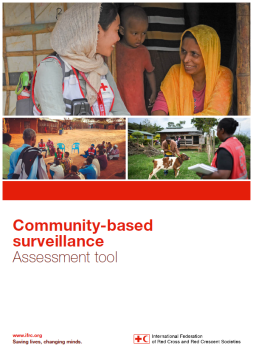Outbreaks begin and end within communities. Often the community is aware of the health threat but the people who can mobilize response resources receive this information too late to limit the spread of a disease and save as many lives as possible. Community-based surveillance (CBS) aims to close this gap and improve early detection.
Thanks to its wide network of volunteers in communities around the world, the Red Cross Red Crescent Movement is uniquely placed to carry out CBS and support community resilience and early action for health risks and events in communities around the world where there is a Red Cross Red Crescent presence.
While CBS has garnered a lot of interest and support in the past years and more National Red Cross Red Crescent Societies are showing interest in starting CBS projects, CBS may not be the answer in all cases, and a needs assessment should be conducted prior to planning implementation.
To facilitate a useful and thorough CBS initial assessment, a CBS assessment tool has been developed to guide Red Cross Red Crescent staff, delegates or others in conducting an assessment, using document reviews and interviews with relevant stakeholders at all levels as sources of data. This Assessment tool builds on the IFRC Community-based surveillance: guiding principles as well as the experience and lessons learned from implementing CBS around the world and will continue to be updated.




